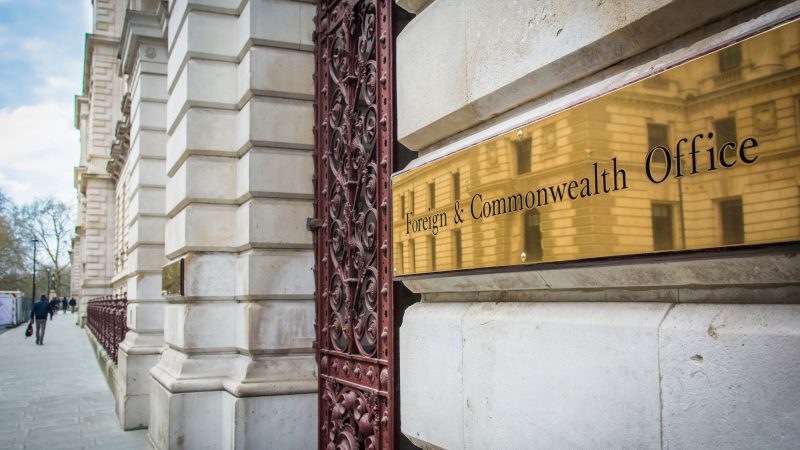
Tony Blair took to the stage at the Labour Party conference on October 2nd 2001 and outlined his vision of the role that he passionately believed Britain must play in the aftermath of 9/11. “This is a moment to seize,” he told the chamber as his speech came to a close. “The kaleidoscope has been shaken. The pieces are in flux. Soon they will settle again. Before they do, let us reorder this world around us.” The vision he outlined was bold: a humanitarian intervention in Afghanistan, crusading zeal to fix the problems of Africa, “new relationships” with Russia and China and tapping the power of tech to make globalisation truly work. New Labour had revolutionised Britain, he clearly believed – and the rest of the world was next.
Two decades later, it all feels very different. The 20th anniversary of 9/11 takes place in the shadow of catastrophe in Kabul, a chaotic withdrawal that should prompt soul searching wherever one stands on our party’s spectrum of foreign policy opinion. Events in Afghanistan particularly defy overly simplistic analysis. Shadow Foreign Secretary Lisa Nandy and Labour leader Keir Starmer are right to hold the government to account – but in truth, Britain has not been the master of its destiny in Kabul. Some of the reasons for that have their roots in Labour’s time in power, not just the initial invasion in 2001 but also the largely unilateral UK decision to escalate militarily in Helmand five years later.
Writing for LabourList, Labour MP for Coventry South Zarah Sultana argued powerfully that Labour needed to think much harder about its mistakes in Afghanistan, saying Britain had wound up in a catastrophic occupation simply to demonstrate its support for Washington. “Just as in 2001, Britain’s suitable class today seems almost unanimous in its belief that liberal democracy can be built at the barrel of our guns,” she wrote. Sultana is wrong to describe it as a war “on Afghanistan”. Those who launched, planned and fought it – often with great loss – thought they were doing so for Afghanistan and its people. Current scenes are a reminder of the costs of abandoning the very real gains the last two decades have bought many ordinary Afghans, particularly women and girls. But she is right of the larger picture; what we have done has not worked, there is plenty of blame to go around and not enough reflection.
That the Blair government made catastrophic errors after 9/11 should be clear. The invasion of Iraq overshadows others, most driven by a false but seductive feeling that preventative war or violence based on never-certain facts was the only way to keep us safe. On this, individuals such as Jeremy Corbyn, Tony Benn and the anti-war left were right, at least with hindsight. By going outside the United Nations on Iraq, we dealt a blow to international law and norms just when they needed to be strengthened. So did the other compromises judged necessary for security – supporting the US in sending prisoners to Guantánamo Bay, extraordinary rendition waterboarding and other forms of torture. Now, with multiple authoritarian states crushing human rights and claiming the West is no better, the harm that did is there and we should be honest about those mistakes.
Many on the anti-war left argue recent events prove the initial 2001 Afghan intervention was an error. And yet the simple truth was that it worked. Small numbers of US and British special forces, bags of cash and messy regional alliances were enough to oust the Taliban, opening the door to dramatically improved lives for ordinary Afghans. Inevitably, the successes of civilian-led ‘nation-building’ that followed were more mixed. But things really unravelled most once Britain sent more troops to Helmand in summer 2006, kickstarting firefights with the Taliban in what became a near decade of troop-heavy intervention that cost hundreds of British and US lives.
Each summer – under Blair, then Brown, then Cameron – allied commanders argued that this was the ‘defining year’ to break the back of the insurgency. As we now know, the opposite was happening: heavy-handed Western operations built dependence amongst Afghan forces, antagonised and strengthened the Taliban and bred further violence. Afghanistan after the US and the UK ceased major combat in 2014-16 was more violent, the Taliban swiftly became dominant in rural areas. But the ongoing commitment of relatively small numbers of UK and US trainers and special forces was keeping Afghanistan’s cities government-run – until their withdrawal prompted collapse this August.
As Britain also found in Libya, Syria and beyond, foreign policy is hard. The kind of unquestioning self-belief that saw Blair back the invasion of Iraq and Biden double down on the Afghan withdrawal can sit poorly with that reality. Labour was in power on 9/11, and its decisions then had consequences. If it wants to hold office once again, it should give thought to how it might make such choices, the values that should drive them and the human cost that comes from thinking things are simple.
The Labour Foreign Policy Group is holding a virtual discussion on ‘Uncertain Legacy: Labour Foreign Policy after 9/11’ on Tuesday, September 6th at 7pm. Sign-up details here.




More from LabourList
Government abandons plans to delay 30 local elections in England
‘The cost of living crisis is still Britain’s defining political challenge’
‘Nurses are finally getting the recognition they deserve’